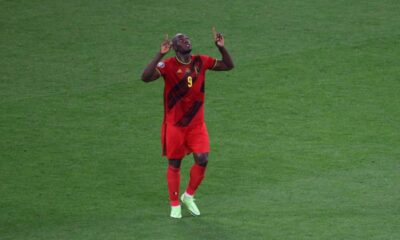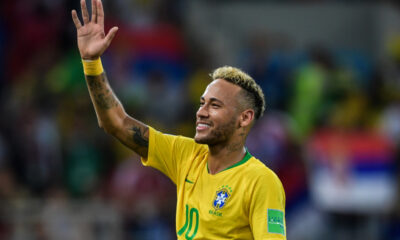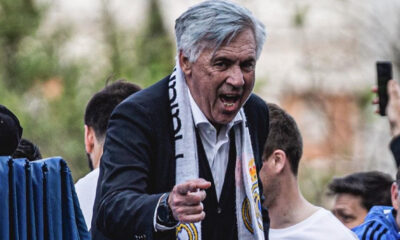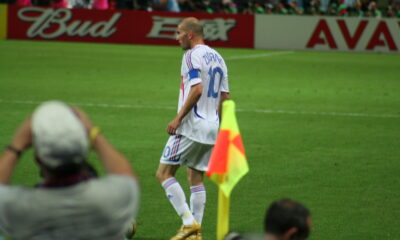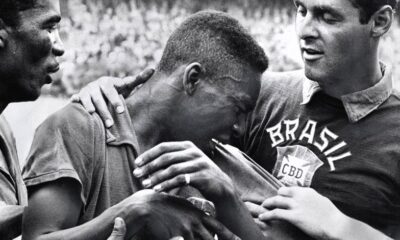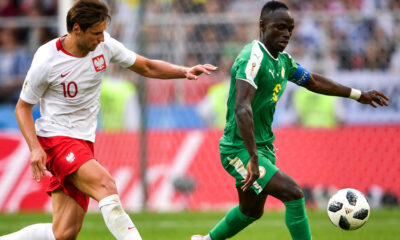Football
Czechoslovakia vs. Brazil: preview of the final match of the 1962 World Cup or How did the media of the time evaluate the chances of the Czechoslovaks?
In March, the Czech national team will face an important match for participation in the World Championship in Qatar. However, this year also marks the 60th anniversary of one of the greatest achievements of the Czechoslovak national team.
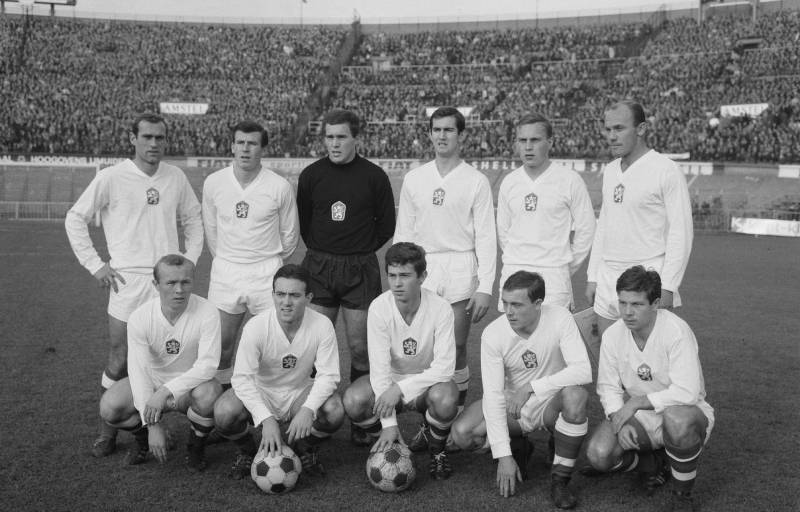
In March, the Czech national team will face an important match for participation in the World Championship in Qatar. However, this year also marks the 60th anniversary of one of the greatest achievements of the Czechoslovak national team. On 17 June 1962, Czechoslovakia played Brazil in the final of the World Championship in Chile. How did the media of the time assess the Czechoslovak chances?
On the day of the match, Red Right published an article entitled ” Today the World Championship is being fought for“, which stated in its introduction: “The 1962 World Cup has entered its final phase. Today at 2:30 p.m. local time (7:30 p.m. ours) at the national stadium in Santiago de Chile, the two best teams of the championship will face off in a decisive battle for the world title.”
It will be the football teams of the Czechoslovakia and Brazil. The CSSR-Brazil match will be extended by 30 minutes in case of a tie in normal time. If no decision is reached even in the set time, a new championship match will be played in Santiago on June 21.”
Subsequently, the journalists from Red Law devoted themselves to the preparation of the Czechoslovak players, who were then staying in the military academy building in Santiago.
A few hours before the final duel, it was also unclear whether players such as Lala, Kvasnak and Scherer would play in that match. The grand final then took place at the Estadio Nacional, which today holds over 43,000 spectators.
Will Pelé come on?
Next, journalists are focusing on whether Brazil’s biggest star, Pelé, will start
Agence France Presse then recalled that the Brazilians probably did not want to make the same mistake the Hungarians made in 1954 when they included the injured Puskas in their final match against Germany. Brazilian coach Aymoré then commented on the situation as follows.
“Pelé’s absence does not weaken our team. Amarildo replaces him perfectly. He is playing better than we expected and scored both goals against Spain (he is talking about the group match which went better for Brazil – 2:1, ed.).”
As you can see, speculations about whether the biggest stars would play in important matches were already present in the sixties. The situation surrounding Pelé in 1962 is reminiscent, for example, of the circumstances surrounding Ronaldo’s inclusion in the Brazilian line-up for the 1998 final match against Zidane and co.
However, unlike Ronaldo in France, Pelé did not feature in the final match against Czechoslovakia.
Agencies at the time estimated the line-ups of both teams as follows:
Czechoslovakia: Schrojf – Lala or Tichý, Popluhár, Novák – Pluskal, Masopust – Pospíchal, Scherer, Kvašňák, Kadraba, Jelínek.
Brazil:: Gilmar – D. Santos, Mauro, N. Santos – Zito, Zózimo, Garincha, Didi, Vavá, Amarildo, Zagallo.
The journalists of the time hit the line-ups. It should be added that the first named of the duo Tichý – Lála came in.
Foreign press
Also interesting are the quotes from European newspapers, printed in the article by Red Right, commenting on the upcoming big match. However, Red Right was the official newspaper of the Communist Party of Czechoslovakia, so the selection and the content of the quotations may have been biased by the editors of this newspaper and the censorship of the time.
The selection of the text of Red Law from the West German daily Deutsche Zeitung is somewhat surprising in this respect, since in 1962 Czechoslovakia did not even recognise West Germany as a state.
This may suggest, among other things, that sport was, after all, to some extent crossing the shadow of the then tense geopolitical situation.
For example, Daily Mail correspondent Manning wrote at the time: ‘The CSSR team, admirably representing Europe in the battle for the world title, will try to break up the attacking style of the Brazilians. I think it will be a great contrast of styles, as it was in 1954 when the attacking Hungarians ran into the German defence. It will be a tough fight.”
Editor Sanders of the Daily Telegraph again assessed the strength of the Czechoslovak selection. “The Czechoslovakian team represents the second best unit in the world. It has a well-coached defence and strikers who can go predatorily for goals. It is the only team that has prevented the Brazilians from scoring and that has beaten Hungary.”
He also noted that the Czechoslovak team at the time was the football leader on the European continent.
“Their success in Chile is due mainly to Popluhar, Novák, Pluskal and Masopusta, who is today the best left midfielder in the world. But on Sunday, in his 59th match for the Czechoslovak national team, he will face the toughest task of his career so far,” he concluded.
As we also write above, Rude Law in its article cited information from the Deutsche Zeitung newspaper. The latter considered the Brazilians to be the undisputed favourites and did not give the Czechoslovak team much chance.
“On closer analysis, the Czechoslovak team was free of all the stains that the football aesthetes saw in it. Soccer experts must therefore be cautious in predicting the results. Let’s not forget that the Czechoslovak champion Dukla Praha beat the famous Pelé’s FC Santos 4::3 and in the knockout group the Czechoslovak national team played the world champion 0::0.”
Red Law also states that there is no need to look back to 1934, when they were in the final of the World Cup, and on the contrary, it highlighted the match against the German Democratic Republic in 1958, when the Czechoslovak team showed excellent play, but the match ended in a 2:2 draw.
I wish that the words of the foreign editors quoted by Rudy Pravo at that time would also be reflected in the performance of the Czech and Slovak national teams today. The Czech one could certainly celebrate the 60th anniversary of the memorable final in 1962 by advancing to the World Cup in Qatar.
Source: Red Law, Daily Mail

